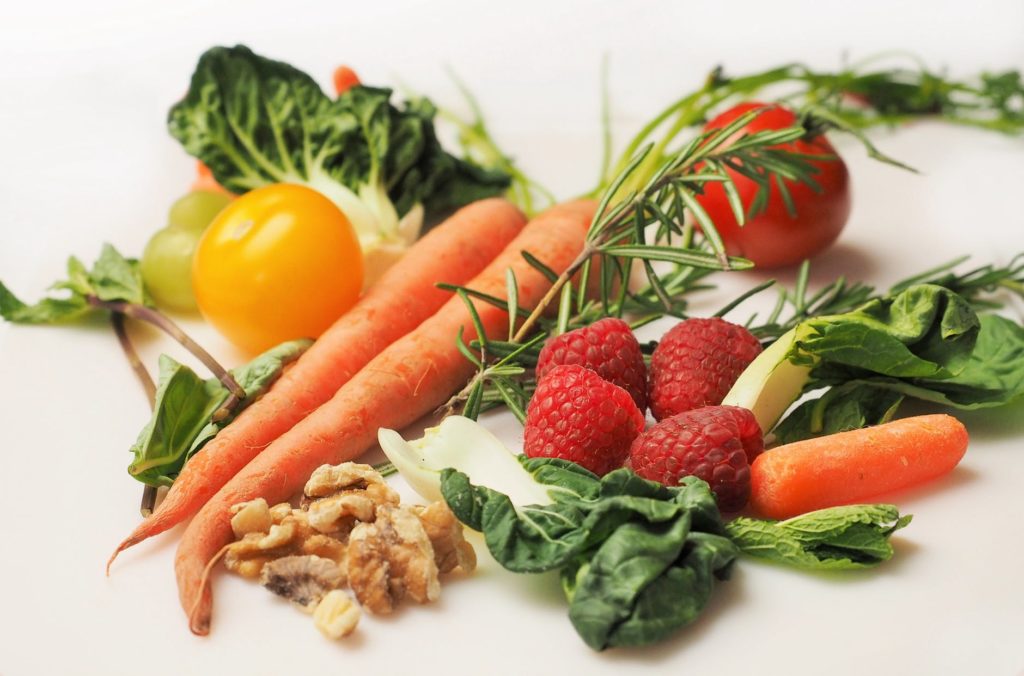August is National Breastfeeding Month! In order for breastfeeding to be the most beneficial for you and your baby, you will want to make sure that your diet is full of the proper nutrients.
Lots of Fruit and Vegetables
Eating fruits and vegetables is going to help you better maintain milk supply for your little one. Fruits can help you get the all important Vitamin C that will help grow and repair your tissue, while also assisting in bone and tooth development for your baby. Eating greens is especially important because they contain antioxidants and other disease-fighting compounds to keep you healthy, which will also transfer to your milk supply. There are a lot of easy ways that you can add more greens into your diet, like adding spinach to your favorite smoothie.
Lean Protein
Your body uses protein to help produce milk, making it vital in your child’s sustained growth. Protein provides your body with nutrients that are needed to grow and repair muscles and other tissues. Adding food such as egg whites, plain greek yogurt, skinless chicken and lentils to your diet can help you get the lean protein you need. Protein can also help you lose any unwanted extra weight you may have gained during pregnancy.
Whole Grain with Every Meal
Whole grains are full of vital nutrients that assist in supporting the hormones that produce breast milk. Adding some whole grains into your meals and snacks throughout the day will help ensure that your body is getting the fuel it needs to continue to normally produce breast milk. Eating whole-grains will also help supply you with energy throughout the day. Try adding in some oatmeal, bran and quinoa into your meal rotation!
Healthy Fats
Eating healthy fats (unsaturated fats) will help benefit your baby’s overall growth and development. These fats benefit your baby more than saturated and trans fats, which you will want to limit your consumption of or avoid. Avocados are a great choice to eat in order to get some healthy fats into your diet!
Lots of Water
Hydration while breastfeeding is important since you are going to be losing a lot of liquids after each feeding. You will want to drink plenty of water because breastfeeding can actually make you feel thirsty. Additionally, you will want to stay hydrated in order to ensure that the cellular processes within your body are running efficiently. Try to have a glass of water with you while you breastfeed to help with rehydration. And since your body naturally dehydrates every night while sleeping, consider jumpstarting the rehydration process by drinking a glass of water right when you wake up.
Don’t Skimp on Calcium
If you decide to breastfeed then you are most likely going to be losing some bone mass due to loss of calcium through breast milk. You are able to regain that bone mass back relatively quickly if you include it in your diet. Calcium is necessary in order to keep our organs and skeletal muscles working properly. It’s recommended that women who breastfeed consume 1000 mg of calcium a day. You can find calcium in foods like low-fat milk products; dark green, leafy vegetables; and almonds. You will most likely want to speak with your doctor about obtaining a supplement in order to ensure you are getting enough!
Make Sure You’re Getting Enough Iron
Breast milk is already relatively low in iron, so it is crucial that you include iron rich foods in your post-pregnancy diet. Your baby can more easily absorb iron from your breast milk than from any other food source. Eating foods such as dark meat chicken, shrimp and cashews can assist in upping your iron levels to keep both you and your baby healthy.
Plan for Alcohol and Caffeine Consumption
If you are planning to consume any alcoholic or caffeinated beverages, make sure you do this after you’ve breastfed your little one. A small percentage of the caffeine you consume is transferred to your breast milk, which means your baby may have a little trouble sleeping if not careful. Alcohol will also transfer into your breast milk, so give your body a few hours for it to work the alcohol out of your system before you go to breast feed again.
